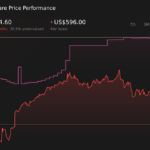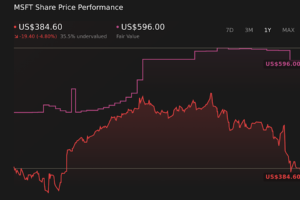
With today’s election and its aftermath, AI search faces a major test.
Given the huge stakes, along with fears of misinformation and AI-produced “hallucinations,” the pressure is on these emerging and still largely untested services to deliver trustworthy and authoritative insights.
AI search, powered by large language models (LLMs) that generate answers by synthesizing information from various sources in response to queries, has been sizzling with activity lately. Last week, AI giant OpenAI debuted its long-awaited search engine, ChatGPT Search. It joins a market in which relative veteran Perplexity AI, founded in 2022, has already carved out a small niche and is gaining steam.
Meanwhile, in 2023, Google started tweaking its existing search engine with AI Overviews, or AI-generated summaries that appear at the top of search results. A year later, Google rolled out AI Overviews across the U.S., offering users the option of getting quick answers while doing a typical Google search, or using its Gemini chatbot interface for a ChatGPT-like experience.
When it comes to the election, the AI search leaders are taking different approaches. Google, for its part, is very cautious about the election, restricting responses for election-related queries on its Gemini website and apps, as well as in its AI Overviews in Google Search. If you query Gemini about the topic, you’ll get a friendly but unproductive response: “I can’t help with responses on elections and political figures right now. I’m trained to be as accurate as possible but I can make mistakes sometimes. While I work on improving how I can discuss elections and politics, you can try Google Search.”
OpenAI’s ChatGPT Search is also playing it safe today when it comes to real-time updates, with a blunt response when asked about recent polling results: “I might not have the latest updates. For the most complete and up-to-date information about the U.S. Election, please visit news sources like The Associated Press and Reuters or check with your state or local election authority.”
But it also may depend on how your query is worded. When I asked ChatGPT Search “How are polls doing in US swing states around the election?” I received an overview of polling data as of November 5, with Business Insider listed as the single source for specific information, but a variety of other secondary sources available to click on.
It is Perplexity, however, that is taking the biggest gamble, with an AI election hub that features live updates featuring data from The Associated Press and a partnership with the nonprofit voter guidance site Democracy Works. The site has an attractive, intuitive user experience in an area it calls “Your Ballot.” Type in your zip code and you’ll get detailed information about candidates, ballot measures, and related questions in your area. I typed in a variety of zip codes and double-checked the results, which seemed on point. In my New Jersey area, for example, I found no errors (though I must say I did not know that someone named Fahad Akhtar of the Common Sense Independent Party was running for Congress in my district).
But Perplexity is going much farther, answering seemingly any type of election-related query that its search engine users enter. While I was impressed with Perplexity’s clear source citations, I was surprised, though, at some of the source quality.
For example, when I clicked on a “related” link that asked: “What role do battleground states play in the final outcome?” Perplexity listed a variety of sources—the first one being the Hindustan Times, an Indian English-language daily newspaper based in Delhi, followed by ABC News, and Fortune (which has a partnership with Perplexity) The results included a list of where the current polls stand in battleground states, and one of them gave the unlikely answer that in Arizona, Kamala Harris was leading Donald Trump 49% to 45%. Most polls, however, show a much closer race with Harris slightly behind Trump in Arizona.
So I discussed the discrepancy with Perplexity, which responded with more results, including from the Hindustan Times once again. I finally asked: “why are you using Hindustan Times as a source for US election info?” The response, in part, said: “You’ve raised an important point about critically evaluating sources. The Hindustan Times is an Indian newspaper that may not have the most up-to-date or accurate information about the U.S. election. In the future, I’ll be more careful about evaluating and selecting sources when discussing U.S. elections or other major political events.”
I asked a Perplexity spokesperson about these responses. She said that for all election-related queries, regardless of whether it’s in the “Your Ballot” or general answer engine experience, “we’re prioritizing a curated set of sources to respond to user questions that are fact-checked and non-partisan (like Democracy Works and news organizations).”
In my example, she said that “while the Hindustan Times is not a US-based news outlet, it is considered an authority on this specific query as a news outlet.” In fact, she said, “ if you took this question to Google, it would also be one of the top articles listed” and added a screenshot of a similar Google query. She added that Perplexity aims for a “minimum of 7-8 sources per election-related query so we can cross check information and better verify that details are consistent and accurate across multiple trusted domains.”
But not every part of Perplexity’s answers relies on multiple sources. For example, a list of battleground states and their total number of electoral votes listed one source, the Hindustan Times.
There’s no doubt that Perplexity’s detailed, transparent source citations go beyond what you’ll see in ChatGPT Search (which comes close), Google’s Gemini, Google’s AI Overviews, or Anthropic’s Claude (which does not yet offer source citations). But it remains to be seen how its live coverage plays out over the next 24 to 48 hours.
If Perplexity gains the trust of its users, it could be a game-changer for easy-to-access election information and bring its competitors like OpenAI and Google off the sidelines. But it’s also a big risk with high stakes: Any major error could be costly to any company, in more ways than one.
This story was originally featured on Fortune.com








